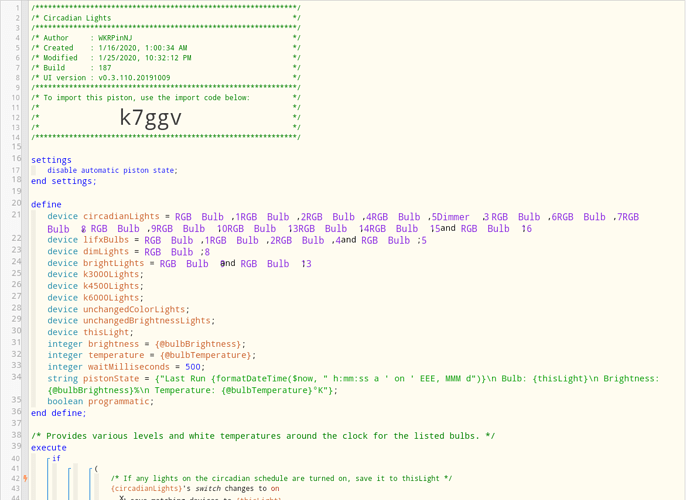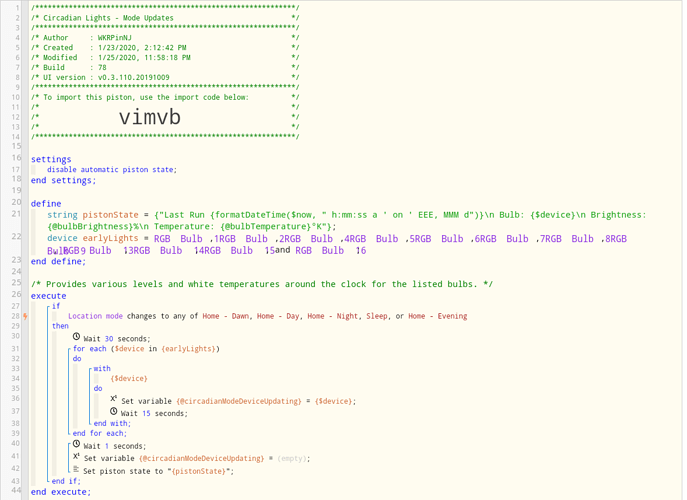1) Give a description of the problem
I made a circadian schedule for level and color temp that updates when each included bulb is turned on. I also made a child piston that cycles through and updates the circadian bulbs at each mode change.
The problem is, when your turn on a bunch of bulbs at once, the piston skips like 30% to 40% of them.
2) What is the expected behaviour?
Every bulb should update, not just most of them.
3) What is happening/not happening?
See above. There are issues with the child piston leaving bulbs on instead of restoring the captured switch state, but that’s another problem.
**4) Post a Green Snapshot of the piston
5) Attach logs after turning logging level to Full
No logs yet, but I can post one if the problem isn’t obvious from the code.



